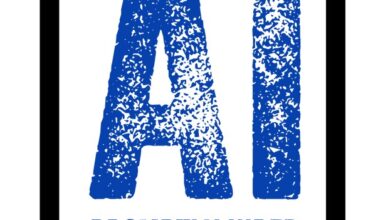- Christopher Nolan shares his insights on the innovative blend of science and cinema that earned him the prestigious Stephen Hawking Medal for Science Communication, in an exclusive discussion with Nobel Laureate Kip Thorne and STARMUS cofounder and director Dr. Garik Israelian. Created by STARMUS Festival and Stephen Hawking in 2015, this honor has also been awarded to luminaries such as Jane Goodall, Brian May, David Attenborough, Buzz Aldrin, and Elon Musk.
- STARMUS unveils this exclusive discussion behind the Stephen Hawking Medal scenes with the director of the iconic Interstellar and the scientific eminence behind its science (LINK), alongside an exclusive tribute piece celebrating the festival’s connection with Interstellar (LINK).
SANTA CRUZ DE TENERIFE, Spain, March 27, 2025 /PRNewswire/ — Renowned director Christopher Nolan received the esteemed Stephen Hawking Medal for Science Communication at the seventh Starmus Festival, joining the ranks of legendary naturalist Sir David Attenborough, artist Laurie Anderson, and oceanographer Sylvia Earle. Established in 2015 by the Starmus Festival and the late Professor Stephen Hawking, this accolade honors individuals who excel in bridging the gap between science and the public through outstanding contributions to communication and education.
The Hawking Medal has been previously awarded to a remarkable array of individuals from various fields, including Jane Goodall, Hans Zimmer, Brian Eno, the sitcom The Big Bang Theory, and Neil deGrasse Tyson, all recognized for their efforts in inspiring global audiences to engage with scientific and technological advancements. This year, Nolan’s exceptional talent in integrating science with cinematic storytelling in films such as Interstellar, Oppenheimer, Inception, and The Prestige has earned him this prestigious recognition.
The Starmus Connection: Interstellar and the Hawking Medal
Starmus, a unique festival where science and art converge, has long celebrated Interstellar as a cinematic masterpiece that brought astrophysics and the mysteries of space into the cultural mainstream. Released in 2014, the film is hailed for its commitment to scientific accuracy and emotional depth, brought to life through collaboration with physicist Kip Thorne, whose research on black holes and wormholes shaped the film’s narrative.
The film’s powerful storytelling and groundbreaking score by Hans Zimmer also made history at Starmus. Zimmer received the Hawking Medal in 2016, making Interstellar the only film to see both its director and composer honored for their contributions to science communication. This dual recognition underscores the film’s significance as a bridge between the scientific community and popular culture.
In addition to its impact on audiences worldwide, Interstellar holds a special place in Starmus history. Hans Zimmer, who composed the film’s iconic score, performed Interstellar live at the festival on two remarkable occasions:
- 2016: As part of a tribute to Stephen Hawking, Zimmer’s performance included inspiring lectures by Nobel laureate physicist Kip Thorne, visual effects supervisor Paul Franklin, and physicist Oliver James from DNEG, sharing insights into the groundbreaking science and visuals of the film. Zimmer was joined by legendary guitarist and astrophysicist Brian May on stage to pay tribute to Stephen Hawking, blending music and science in an unforgettable performance.
- 2019: During the festival’s celebration of the 50th anniversary of Apollo 11, Zimmer once again performed the Interstellar score, accompanied by lectures from the same esteemed team, highlighting the enduring relevance of the film to space exploration and scientific discovery.
A Cinematic Legacy Rooted in Science and Art
Christopher Nolan openly cites Stanley Kubrick’s 2001: A Space Odyssey, based on Arthur C. Clarke’s visionary book, as a profound influence on Interstellar. Kubrick’s groundbreaking work was informed by Clarke’s deep understanding of space exploration and humanity’s future, creating a film that remains a cornerstone of cinematic and scientific dialogue.
Adding authenticity to his film, Kubrick utilized the actual breathing sounds of Alexei Leonov, the first human to perform a spacewalk. This meticulous detail lent a sense of realism and connection to the space age, demonstrating Kubrick’s commitment to science-driven storytelling. Leonov’s contributions extended far beyond cinema; he also created the sketch of Stephen Hawking that inspired the design of the Hawking Medal, bridging the worlds of art, science, and human achievement.
The Birth of Starmus
Arthur C. Clarke, a pivotal figure in both science and literature, was instrumental in the genesis of Starmus. His conversations with Starmus founder Dr. Garik Israelian in 2001 and 2002 inspired the project, then known as “The Music of the Stars,“ which evolved into the Starmus Festival in collaboration with Dr. Brian May. Many years later Brian Eno composed a track using the same Starsounds library. Clarke’s support of this initiative underscored his lifelong passion for connecting science and the arts, laying the foundation for what has become one of the world’s most unique science festivals.
Extending Kubrick’s Vision
Nolan, through Interstellar, carried forward the legacy of Kubrick’s work by collaborating with Kip Thorne, who extended the concept of the monolith from 2001 into scientifically grounded depictions of wormholes and black holes. Similarly, Hans Zimmer, who composed the film’s iconic score, ensured his music stood alongside the monumental works of Johann Strauss, György Ligeti, and Aram Khachaturian, whose compositions shaped the auditory experience of 2001: A Space Odyssey.
A Tribute to Interstellar
In honor of Interstellar‘s profound impact and its enduring legacy within Starmus, the festival is releasing a special tribute video (LINK). This exclusive video will feature unique and never-before-seen footage from the 2016 and 2019 performances, including Hans Zimmer’s live renditions of the film’s score, and highlights from lectures by Kip Thorne, Paul Franklin, and Oliver James. The tribute will be a celebration of the film’s ability to inspire audiences to explore the mysteries of the cosmos and the intersection of science and art.
Honoring Science Through Art
Dr. Garik Israelian, founder of Starmus and researcher at the Institute of Astrophysics of Canary Islands (Spain), emphasized the festival’s mission to bring science closer to society: “Christopher Nolan has demonstrated that cinema can be more than entertainment; it can be a powerful tool for education and inspiration. With Interstellar, he brought the wonders of astrophysics to millions, fostering a deeper understanding of our universe.”
Continuing the Legacy
Each Stephen Hawking Medal award ceremony celebrates the legacy of Stephen Hawking, who believed deeply in the power of storytelling to make science accessible. Nolan’s work resonates with this vision, inspiring new generations to look to the stars and dream of the impossible.
For more information about the Hawking Medal and the Starmus Festival, visit www.starmus.com.
About STARMUS
Created by Garik Israelian PhD, astrophysicist at the Institute of Astrophysics of the Canary Islands (IAC) and Sir Brian May PhD, astrophysicist and the lead guitarist of the iconic rock band Queen, Starmus is a festival of science, art and music that features presentations from astronauts, cosmonauts, Nobel Prize winners and prominent figures from various scientific disciplines and musical backgrounds. Starmus brings together Nobel laureates, eminent researchers, astronauts, thinkers and artists to share their knowledge and experiences, as we search for answers to the great questions of our time.
The STARMUS Advisory Board members are: Jane Goodall, Brian May (co-founder), Garik Israelian (Director and co-founder), Peter Gabriel, Emmanuelle Charpentier, Richard Dawkins, Chris Hadfield, Jill Tarter, Steven Chu, and David Eicher.
Home of the Stephen Hawking Medal
Stephen Hawking and Alexei Leonov, together with Brian May and Garik Israelian, worked to create the Stephen Hawking Medal for Science Communication in 2015, which is awarded to individuals and teams who have made significant contributions to science communication. Previous Stephen Hawking Medal winners include Dr. Jane Goodall DBE, David Attenborough, Christopher Nolan, Neil deGrasse Tyson, Jean-Michel Jarre, Brian May, Laurie Anderson, and the Apollo 11 documentary.
Video: https://youtu.be/hj1rdUUrE_I?si=4dnSRO3TUJCd_6na
Video: https://youtu.be/KWberAjA4ec?si=JrRs_-3Fm5QdbglN
STARMUS Communications:
Brezo Rodríguez
[email protected]
[email protected]
+34 678 255 196
View original content to download multimedia:https://www.prnewswire.com/news-releases/behind-the-stephen-hawking-medal-scenes-starmus-christopher-nolan-and-kip-thorne-on-their-groundbreaking-fusion-of-science-and-cinema-302413112.html
SOURCE Starmus





